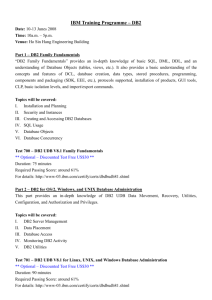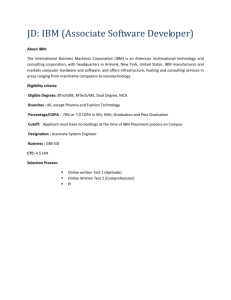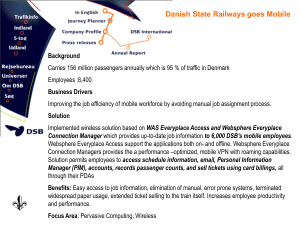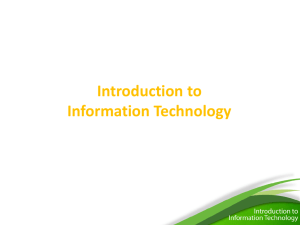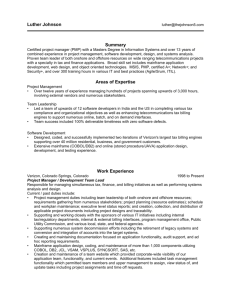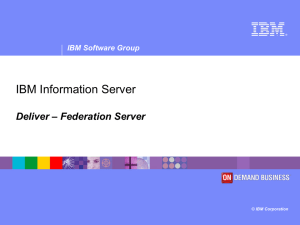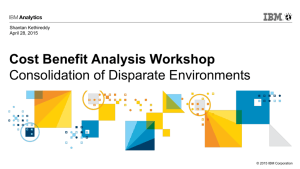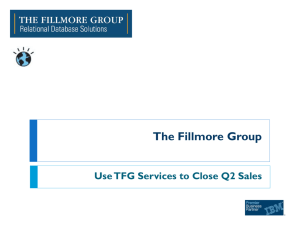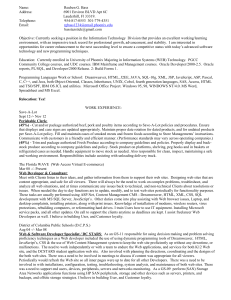IBM System z Certificate
advertisement
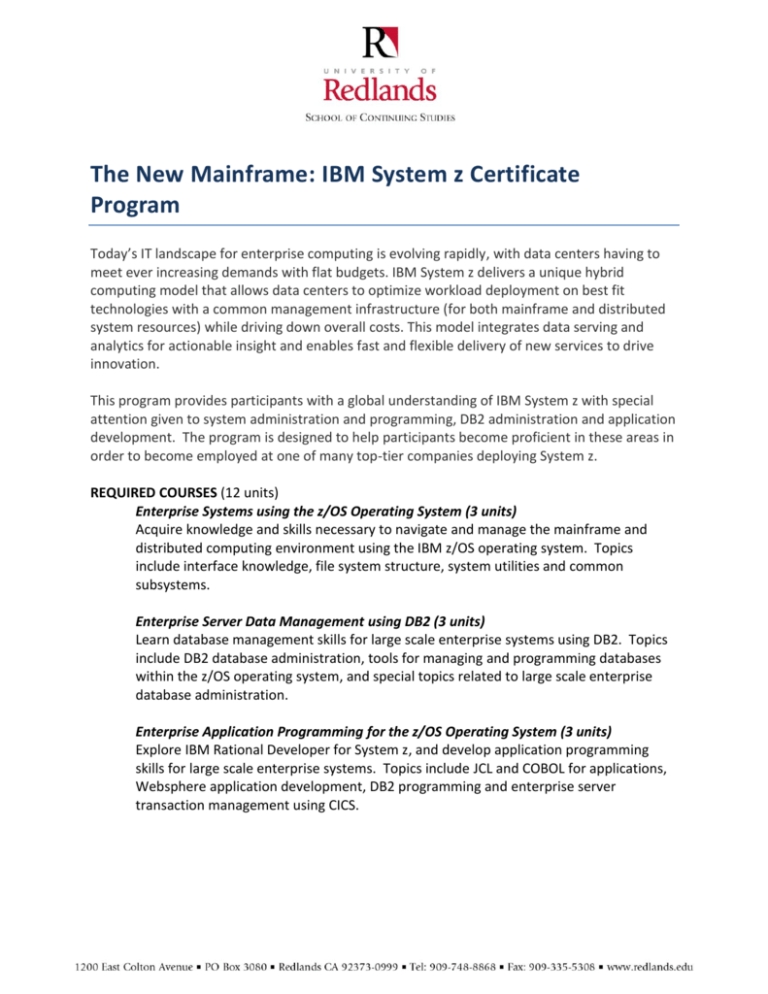
The New Mainframe: IBM System z Certificate Program Today’s IT landscape for enterprise computing is evolving rapidly, with data centers having to meet ever increasing demands with flat budgets. IBM System z delivers a unique hybrid computing model that allows data centers to optimize workload deployment on best fit technologies with a common management infrastructure (for both mainframe and distributed system resources) while driving down overall costs. This model integrates data serving and analytics for actionable insight and enables fast and flexible delivery of new services to drive innovation. This program provides participants with a global understanding of IBM System z with special attention given to system administration and programming, DB2 administration and application development. The program is designed to help participants become proficient in these areas in order to become employed at one of many top-tier companies deploying System z. REQUIRED COURSES (12 units) Enterprise Systems using the z/OS Operating System (3 units) Acquire knowledge and skills necessary to navigate and manage the mainframe and distributed computing environment using the IBM z/OS operating system. Topics include interface knowledge, file system structure, system utilities and common subsystems. Enterprise Server Data Management using DB2 (3 units) Learn database management skills for large scale enterprise systems using DB2. Topics include DB2 database administration, tools for managing and programming databases within the z/OS operating system, and special topics related to large scale enterprise database administration. Enterprise Application Programming for the z/OS Operating System (3 units) Explore IBM Rational Developer for System z, and develop application programming skills for large scale enterprise systems. Topics include JCL and COBOL for applications, Websphere application development, DB2 programming and enterprise server transaction management using CICS. Administration, Networking and Security for Enterprise Systems using the z/OS Operating System (3 units) Develop advanced skills to support large scale mainframe and distributed computing applications using the IBM z/OS operating system. Topics include system administration, networking, hardware connectivity, network architecture, authentication, communications strategies, problem solving and threat analysis. As an open enrollment program, there are no application or admission requirements, and students may enter the program at any time. Courses are taught throughout the year at one of the University of Redlands Southern California regional campuses. The program may also be delivered as a custom on-site offering where organizations are able to integrate existing workrelated issues and projects in the curriculum. The program is designed for IT professionals or those looking to enter the profession. Participants should have a basic understanding of a common programming language (C++, Java, etc.), database administration and operating systems. Participants are not required to have advanced IT skills in one or more of these areas in order to successfully complete the program. Individual courses may be taken by those who are interested in gaining specialized understanding in a topic. Advisory Committee Members of the Advisory Committee come from private and public organizations. Most are active professionals with years of teaching and training experience. The role of the Advisory Committee is to help shape the curriculum, lead the development of future offerings, identify trends in the discipline, expand partnership opportunities with organizations and professional associations, identify adjunct faculty and guest speakers to teach in the program, mentor students and expand the University’s reach to new audiences. Teaching Excellence Following the University’s decades-long tradition in professional business education, the program is staffed by practitioner faculty who combine years of professional expertise with the ability to teach and train others. Faculty are continually reviewed by students and staff to ensure they provide the most up-to-date and relevant information in the field. Faculty members possess a degree, usually in computer science or related field, and a commitment to continuing education. Academic Credit Courses offer full academic credit, and you may be able to apply these units toward a degree. All degree programs have unique requirements, therefore, you are encouraged to speak with an academic advisor at your home college or university to ensure the applicability of the course credits to your degree. For more information, visit www.redlands.edu/continuingstudies, or contact infoscs@redlands.edu or (909) 748-8868.
